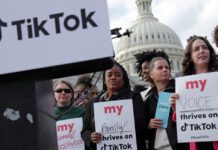As of Saturday morning the internet – or at least the bit of it that manages the network’s “address book” – is no longer controlled by an American organization but by an international group.
The move inspired much heated pre-election rhetoric as the 1 October deadline drew near – chiefly from a group of US Republican governors, who backed unsuccessful last-minute court action to delay the transition on the grounds that it wasn’t in US interests.
They failed. “Stewardship” of the Internet Assigned Numbers Authority (Iana) has now moved away from the National Telecommunications and Information Association (NTIA) – a branch of the US Department of Commerce – and over to an international “multi-stakeholder community”.
So has America really “given away” control of the internet?
Some of the most public statements opposing the move came from a group of Republican senators, including Chuck Grassley, Ted Cruz and Roy Blunt.
“It is profoundly disappointing that the Obama administration has decided to press on with its plan to relinquish United States oversight of crucial internet functions, even though Congress has not given its approval,” they said.
“For years, there has been a bipartisan understanding that the Icann transition is premature and that critical questions remain unanswered about the influence of authoritarian regimes in internet governance, the protection of free speech, the effect on national security, and impacts on consumers, just to name a few.”
However, many key players and analysts suggest that the newly implemented governance model for Icann (Internet Corporation for Assigned Names and Numbers) will actually strengthen the ability of the global community to challenge contentious decisions and ensure that control of the global internet address book never falls into the wrong hands.
The NTIA, which is now out of the internet stewardship business, provided a detailed public assessment of the impact of the change in a statement on its NTIA website in August, detailing why it would be hard for a group of “bad actors” to take control of the process of managing internet names.
“The community’s new powers to challenge board decisions and enforce decisions in court protect against any one party or group of interests from inappropriately influencing Icann,” it stated.
“In conducting the review of the transition proposal, NTIA also retained an expert panel of corporate governance experts who reviewed the Icann accountability proposal, including assessing any risk of capture. In their assessment, the experts found the prospects for a takeover of Icann by a single government, a group of governments, or one or more economic actors to be extremely remote.”
Dr Olivier MJ Crépin-Leblond, who was a member of an Icann working group that developed the transition proposal, said the new arrangement also provides real teeth for resolving disputes.
“It is a real improvement on the prior structure,” he said. “The ability to overrule the Icann board was seen as a very important development because it was the solution to overturn decisions that might be taken by a rogue board, should it ever happen to become rogue in the future.”
He said that so-called “golden by-laws” have been introduced that can’t be changed solely by the board. “The key to all of these by-laws is to make sure that Icann, the organisation, is as stable as possible, as accountable as possible and as bottom-up as possible.”
The symbolism of the move – not lost on activist Republicans – is as important as the practical changes in who controls the internet. The internet, and internet business, has steadily become more global and more critical to the lives of many people on the planet. With this gradual change came increasing pressure on the US to relinquish some managerial control. After many years of painstaking negotiation and diplomacy, that has now happened – though internet users won’t notice any difference at all.
“The function that was assumed by the US Department of Commerce was primarily a technical function and this has been replaced by a new set of service level expectations which are actually higher than any other prior agreements,” said Crépin-Leblond. “As a result, the quality of service that will be offered by the Iana functions operator will be better than at any previous time in the history of the internet.”
Milton Mueller, professor at the Georgia Institute of Technology School of Public Policy and a principal of the Internet Governance Project, said that the real story of the Iana transition is that it provides a great example of how to create a global governance model.
“The overall positive outcome is that we’re creating a global governance regime that matches the global scope of the internet and we can extract ourselves from all the existing arrangements that are related to nation states,” he said. “We don’t want to put it into the intergovernmental politics of the UN.”








